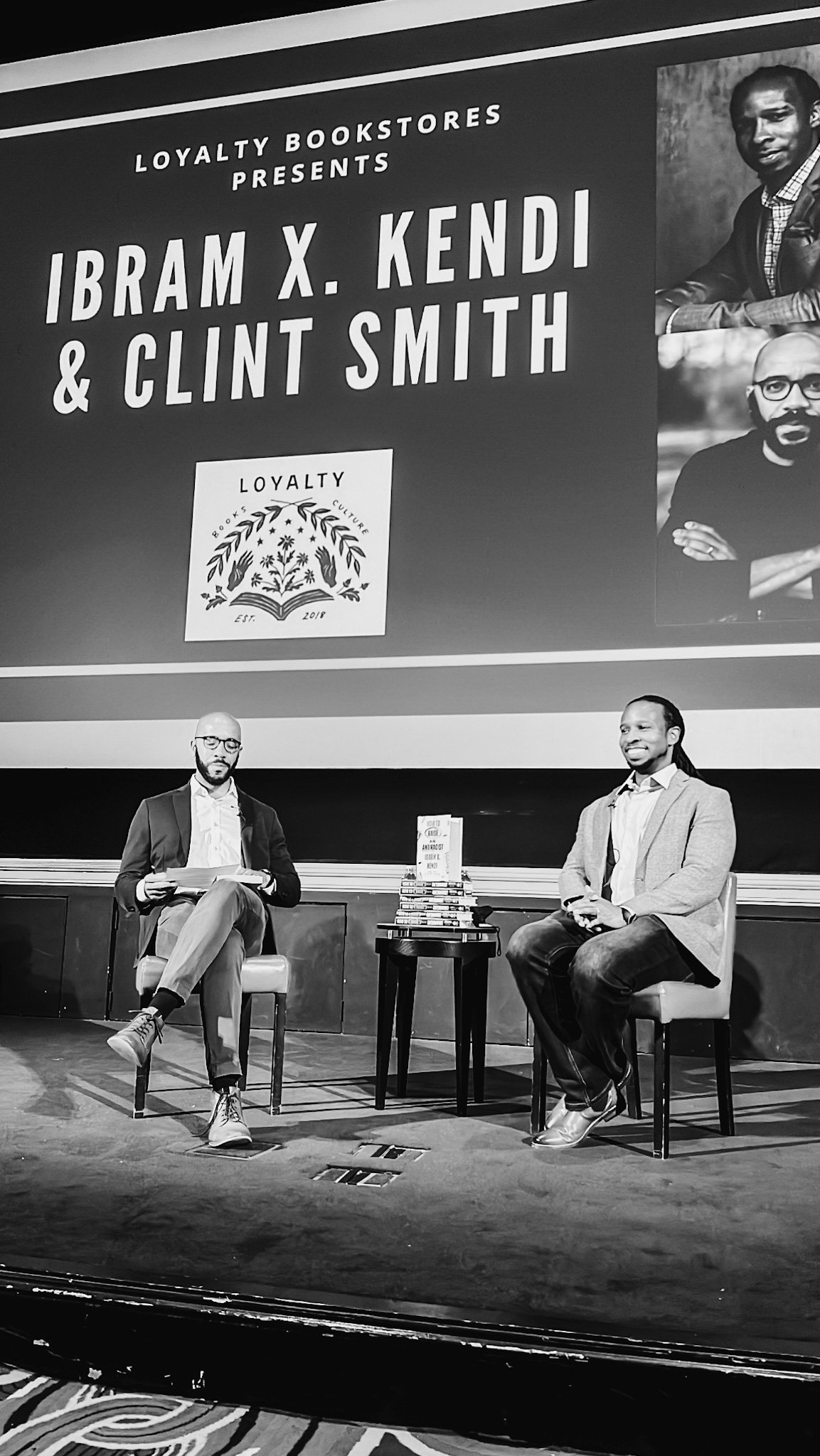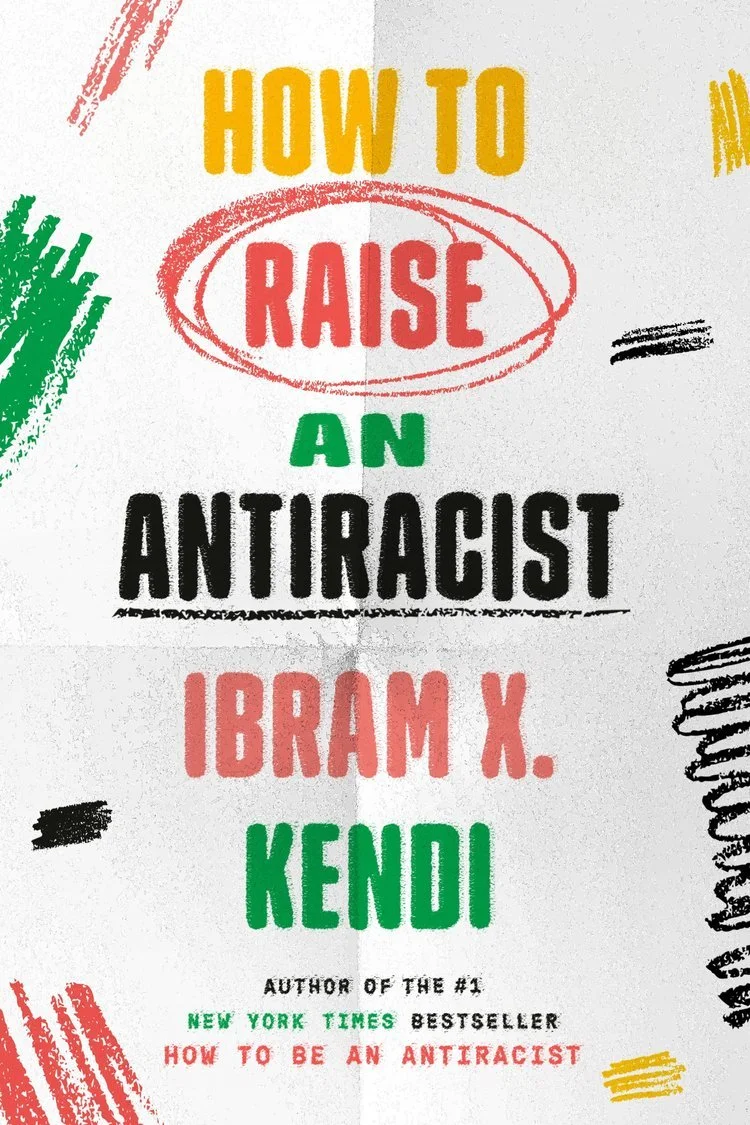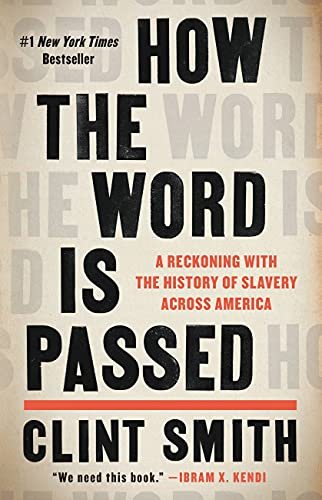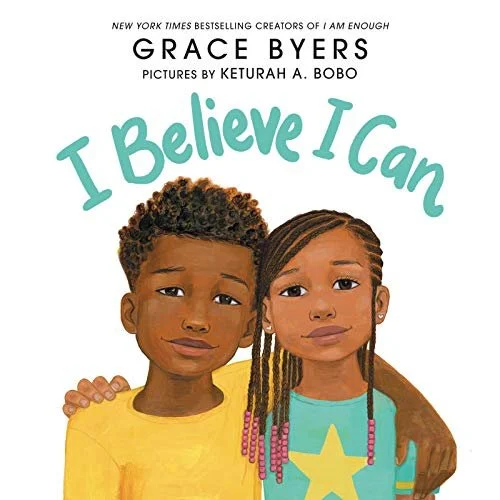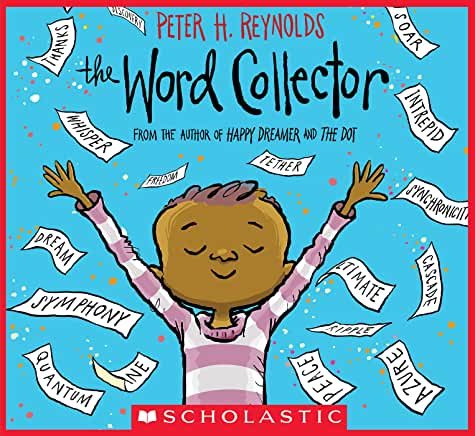Can’t believe I was this close to them
“I feel like Dr. Kendi is probably gonna be short. Like 5’2”! Short king season definitely ended with the recession,” said my companion on the left. He graciously allowed me to join him in the very front of the Washington, D.C. auditorium where Ibram X. Kendi and Clint Smith were scheduled to discuss Kendi’s newest book, How to Raise an Antiracist.
We waited as Hannah Oliver Depp, the Black and queer founder of Loyalty Bookstores who often forced the room into laughter, introduced the two men of the hour. They emerged from the shadows.
Short king season? Anything but.
The two decorated scholars entered from stage right, their six-foot figures soaking in the applause from the crowded auditorium. After all these years of virtual meet-ups and conversations, Dr. Ibram X. Kendi and Dr. Clint Smith seemed just as moved as we all were to finally enjoy each other’s company again.
They wasted no time in getting to business.
Clint Smith, moderator, asked the How to Be an Antiracist writer some questions about raising an antiracist, and where this journey stemmed from. The idea behind raising an antiracist, Kendi explained, could be traced to the time a young Kendi and his mother went to a department store only to be tailed by a white employee. “I asked my mother if she recognized that we were being followed, to which she replied ‘Yeah, he just thinks we’re going to steal something,’ looking straight at the white man.” Kendi and Smith also discussed the problems in not discussing antiracism with kids as they’re growing up and its deadly effects on society.
How to Raise an Antiracist is uniquely positioned to remind America that merely being antiracist, marching in protests, and voting isn’t simply enough.
In a developed nation that sees teenagers arm themselves with semi-automatic weapons to wage twisted, bloody crusades against unarmed children in schools, Kendi reminds us that political discourse can make it seem as if talking about racism and antiracism is a distinctly Black practice, but it’s an inherently American issue.
“Soft-banning,” an idea that Kendi playfully stole from the anonymous member of the audience during the Q&A session, is what some liberal politicians and voters are essentially doing when they claim that they want their students to learn history, but feel that younger students aren’t yet ready to have conversations around racism.
“This is an excuse for ignorance,” Kendi said. It’s a real threat even here in Washington, D.C. There are still ways to talk about antiracism and being antiracist with your children, because studies show that American kids as young as three are already processing race and color the way their adult counterparts do.”
Kendi made another brilliant point: “Black people might be used to having these conversations with their kids, but white people aren’t even taught their own antiracist history. William Lloyd Garrison? The Grimké Sisters? These people were staunchly against the racism of their day. Instead, from a younger and younger age, white kids are being inundated with white supremacist messages online, on YouTube and on TikTok. These are the messages white teenagers grow up to act out at schools with AR-15s.”
This Ph.D student finally felt what a classroom could be like, since I’ve never had a course in-person with my peers. It felt stimulating–motivating, even–to know that even in this audience, there were intellectuals in the shadows. Many penned questions to the two scholars. I was honored to have one of my questions chosen.
I know, I could’ve asked about antiracism, or what it means for us when our books are banned, or how to, well, raise an antiracist. Instead, I asked what was on my mind:
“As a History, Ph.D student preparing to take comprehensive exams, what advice do you have for me?” read Hannah Oliver Depp during the Q&A session.
Yep, I had Ibram X. Kendi and Clint Smith all to myself and in that moment, the comps were still all I could think of. They are the bane of my existence (and the object of all of my desires).
The crowd laughed, I’m guessing more than a few understood this rite of passage.
Smith was honest. “First of all, thanks for even taking the time to come out here tonight! I failed the first time I took my comprehensive exams,” he said. “I wasn’t intentional the way I should’ve been, and if I failed them a second time I would’ve been kicked out of the program. I passed and I’m here today.”
“However, don’t let social media make you think that the academic process is like a lazy river–sort of like drifting around as things happen to you. It may seem like things just magically happen when they really don’t.”
The New York Times Bestselling author turned his gaze towards me in the front row, as if he knew who that anonymous question came from (this high achieving Enneagram 4w3 in the audience). “Be easy on yourself. Don’t feel like you need to read 18 hours a day. Don’t cheat yourself, either. By that, I mean take the time to go outside and take a walk and pet the neighbor’s dog and don’t feel bad for bingeing Netflix–no, really!”
Kendi, too, seemed to take a few glances in my direction as he reminded me to “read voraciously and learn to do so while you’re very busy.” I can definitely empathize with that one, as there’s a never-ending list of books to read until the fall and I’ve hardly scratched the surface. “The greatest intellectuals and best writers,” Kendi motioned towards his contemporary on his right, “Become even better by reading so much. As your career advances, it’ll be harder to read and it can feel like a lot of tabs are open. The best intellectuals still find the time to read.”
The audience applauded their answers and I gratefully pressed my hands together as if prayerfully giving thanks (because I definitely need all the thoughts and prayers as I can get). As the night came to a close, Hannah Oliver Depp asked her own thought provoking question: “What are the books you wish you would’ve had when you were kids?”
The Word Collector by Peter H. Reynolds was Smith’s first choice, but he also said that having The Phantom Tollbooth by Norton Juster and The Giver by Lois Lowry as a kid were really inspiring for him, too. Meanwhile, Kendi’s pick was I Believe I Can by Grace Byers for reminding Black kids of their limitless potential when they’re told they can’t.
I soaked in every moment as Smith and Kendi stood in unison, enjoyed the applause one last time, and were ushered off into a secluded hallway where they hugged friends from town and went out a back door. I hoped I’d get lucky and have a moment with these two authors who have inspired me to use my creative writing as I tell historical stories, but this was enough. It may not be my turn yet, but I hope these authors are on the other side of that secluded hallway waiting for me someday.
“Who knows? Maybe the universe will bring us together some time,” said my companion for the evening. I bid him adieu and kept my signed copy of Kendi’s newest tome, How to Raise an Antiracist close to my side. I imagined that I’d be on a panel next to Kendi one day, addressing an audience and being invited to special dinners with a select number of friends in town. As I walked out of that theater and towards my silver sedan, I was reminded of the real reason Clint Smith and Ibram X. Kendi passed their comps:
“Ground yourself in your ‘why.’ Everyday, as you’re learning history, remember that the practice is more than just about comprehensive exams, but arming yourself with context, knowledge, and intellect for life.”
If you’re about to take your comprehensive exams as I am, or you’re struggling through a career path, these scholars have reminded us to hold onto “Why?” Because just doing it isn’t always enough.
Let’s pass those comps!

